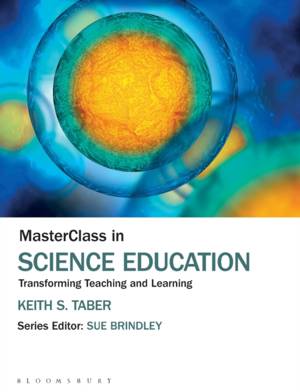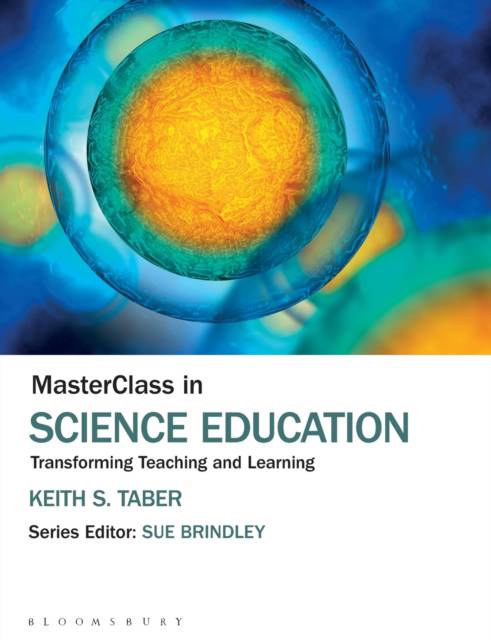
Je cadeautjes zeker op tijd in huis hebben voor de feestdagen? Kom langs in onze winkels en vind het perfecte geschenk!
- Afhalen na 1 uur in een winkel met voorraad
- Gratis thuislevering in België vanaf € 30
- Ruim aanbod met 7 miljoen producten
Je cadeautjes zeker op tijd in huis hebben voor de feestdagen? Kom langs in onze winkels en vind het perfecte geschenk!
- Afhalen na 1 uur in een winkel met voorraad
- Gratis thuislevering in België vanaf € 30
- Ruim aanbod met 7 miljoen producten
Zoeken
€ 76,45
+ 152 punten
Uitvoering
Omschrijving
Worried about teaching natural selection, submicroscopic particle models or circuits? Keith S. Taber explores a range of issues faced in secondary science teaching and discusses strategies for teaching the nature of scientific knowledge, making practical work effective and challenging gifted young scientists.
MasterClass in Science Education shows how to become a master science teacher by developing and adopting the habits and mind-set of a teacher-as-scientist. The author introduces the three pillars of this approach: subject knowledge, pedagogic knowledge, and classroom research. The body of subject knowledge in the sciences is both vast and constantly evolving as it is challenged, updated and developed, and this text supports you to understand the dynamic nature of knowledge and the implications this has for your teaching.
Taber shows how to use a knowledge-in-action approach, enacting knowledge in the complex and dynamic classroom environment. He supports you to critically examine classroom experiences, drawing on a wide-range of research-informed perspectives that offer insights into facilitating effective student learning. He also guides you to understand how to use recommendations from published research studies as components of a toolkit to improve your teaching and learning.
MasterClass in Science Education shows how to become a master science teacher by developing and adopting the habits and mind-set of a teacher-as-scientist. The author introduces the three pillars of this approach: subject knowledge, pedagogic knowledge, and classroom research. The body of subject knowledge in the sciences is both vast and constantly evolving as it is challenged, updated and developed, and this text supports you to understand the dynamic nature of knowledge and the implications this has for your teaching.
Taber shows how to use a knowledge-in-action approach, enacting knowledge in the complex and dynamic classroom environment. He supports you to critically examine classroom experiences, drawing on a wide-range of research-informed perspectives that offer insights into facilitating effective student learning. He also guides you to understand how to use recommendations from published research studies as components of a toolkit to improve your teaching and learning.
Specificaties
Betrokkenen
- Auteur(s):
- Uitgeverij:
Inhoud
- Aantal bladzijden:
- 256
- Taal:
- Engels
- Reeks:
Eigenschappen
- Productcode (EAN):
- 9781474289412
- Verschijningsdatum:
- 13/12/2018
- Uitvoering:
- Paperback
- Formaat:
- Trade paperback (VS)
- Afmetingen:
- 189 mm x 246 mm
- Gewicht:
- 458 g

Alleen bij Standaard Boekhandel
+ 152 punten op je klantenkaart van Standaard Boekhandel
Beoordelingen
We publiceren alleen reviews die voldoen aan de voorwaarden voor reviews. Bekijk onze voorwaarden voor reviews.









